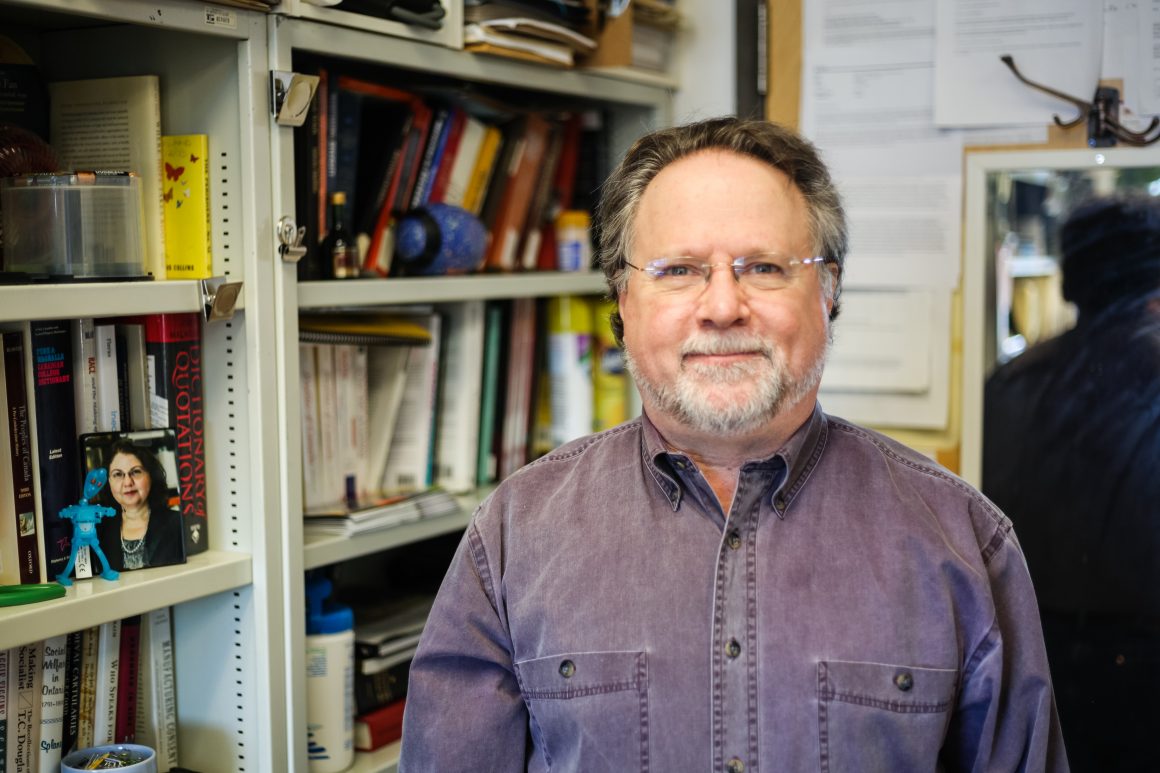
History prof receives grant to study university hazing rituals
By Kristy Koehler, December 5 2019—
“University initiations were ongoing sites of cultural struggle that held educational, gendered, and class margins in place.”
This comes from Feverish Frolics of the Frivolous Frosh: Women’s Cultures of Initiation in Western Canadian Universities, 1915 – 1935. The article, written by Paul Stortz, an associate professor in the Department of History, and his late wife Lisa Panayotidis, a professor in the Werklund School of Education, is contained within the book they co-edited, entitled Women in Higher Education, 1850-1970. In the article, Stortz and Panayotidis draw on the reporting of campus press for first-hand accounts of hazing rituals, citing both The Ubyssey and The Sheaf.
Stortz has recently received a national research grant from the Social Sciences and Humanities Research Council (SSHRC) to continue researching the history of university hazing, initiations and bullying in Canada. He hopes to write a book so that the information is readily available for those who wish to debate it.
While the practices have been ongoing for 800 years, Stortz says the literature on the topic is relatively small. The SSHRC Insight Grant will allow Stortz to continue exploring something that is still very relevant today, as it intersects with student mental health.
“The mental health of students today has become a huge issue and not a moment too soon,” said Stortz. “Mental health is obviously fundamental and integral in how people get through life. My work deals with student mental health — some of these rituals could be really brutal and vicious.”
Stortz’s research also involves what he calls “power and voice.”
“Initiations and hazing are really expressions of power,” he said. “They are expressions of people trying to identity themselves and live in a particular way on campus that’s meaningful to them. And so the hazing represents a very complex kind of performance, a complex form of collective and individual expression of identity.”
Not only does his work involve the study of power dynamics in these rituals, but also interactions between social class, experience, age, race, ethnicity and gender. His research not only focuses on the way these interactions take place on campus, but also how they impact the off-campus life in university towns.
“The university is such a different place, in one way. In other ways, the university lives within the city and the city influences the university,” he said. “A lot of the hazing historically bled out into the local communities with parades, dances, that kind of thing. What I continue to look at is that exchange of knowledge and identity formation between the university and city — how do the values, understanding and expectations go back and forth?”
The university experience is a unique one, says Stortz, who encourages critical thinking and discussion in his classroom.
“The university is the only place in your life that you can ask a question about anything — as long as you expect to get a critical discussion or response,” he said.
Stortz is teaching an upper-level history class in the winter semester that will incorporate the study of hazing and initiation rituals — HTST 593: History of Education in Canada runs Wednesdays from 3:00 – 5:45 p.m.
